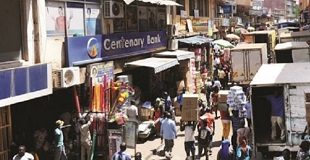
Reporters need be allowed to work because silencing them increases crimes and threatens democracy
COMMENT | ROBERT MAHONEY | What does it cost to silence a muckraking reporter? In the Philippines, officials needed just $250 in 2011 to buy the services of a journalist-slaying gunman. In Slovakia, Ján Kuciak and his fiancée were killed in February for about $80,000.
For corrupt politicians and crime bosses, neither sum is significant. The cost to democracy, however, is immeasurable.
Every year, more journalists are murdered because of their reporting than die in war zones. Since 1992, when the Committee to Protect Journalists (CPJ) began compiling data, 1,324 journalists have been killed on the job, and 849 of them were executed for their work. But in nearly 90% of these murders, the people who ordered the attacks escaped justice. On the rare occasion that a full investigation was conducted, only low-level associates were ensnared. The big fish usually got away.
The problem is not confined to countries in the Global South. October 16 marked one year since Daphne Caruana Galizia, a Maltese journalist investigating corruption, was killed by a car bomb just minutes after filing a story that seemed to forecast her death. Three men have been charged with her assassination, but the masterminds remain at large.
Similarly, Slovakia – like Malta a European Union country – has failed to deliver justice in the brutal murder of Kuciak and his fiancée, Martina Kušnírová, at their home near Bratislava. Although police have made arrests in the case, not all of the organizers – who presumably did not want him digging into allegations of mafia activity in the country – have been found.
And while Saudi Arabia has now admitted that the journalist and Washington Post columnist Jamal Khashoggi was killed in the Kingdom’s consulate in Istanbul, the ongoing investigation of the case is equally unlikely to lead to the prosecution of all those responsible for his disappearance.
Impunity in such cases is a cancer on accountability and democracy. Reporters need the rule of law to work effectively. When law enforcement and the judiciary are in thrall to organised crime, journalists know that no one will protect them when they dig up stories threatening the interests of criminals or corrupt officials.
The consequences are easy to spot in a country like Mexico, where cartel crime goes unreported in huge swaths of the country. Brave reporters who have refused to be cowed have paid with their lives, and cartel-linked killings have had the intended effect of silencing others. In fact, most Mexican journalists can instinctively identify “zones of silence” where democracy and transparency perish.
In 2013, the United Nations sought to bring global attention to the problem by making November 2 the annual International Day to End Impunity for Crimes Against Journalists. My organisation supports this effort with our yearly Global Impunity Index, which shows that democracies like Mexico, Brazil, India, Pakistan, and the Philippines consistently fail to convict journalists’ killers.
Journalists know that democracy and a free press are mutually dependent, and that when reporters are silenced, embezzlement, extortion, and environmental crimes increase. And while many are fighting back, they could use some help.
One of the most promising weapons in the struggle against impunity is sanctions. Since 2016, the Global Magnitsky Human Rights Accountability Act in the United States has authorized the US president to impose visa bans and freeze the assets of foreign nationals suspected of gross human rights violations. Canada enacted its own Magnitsky law in October 2017, while Estonia, Lithuania, Latvia, and the United Kingdom have introduced similar measures.
But enacting a law is not the same as using it. With the exception of several individuals implicated in the 2004 murder of Forbes editor Paul Klebnikov in Moscow, Magnitsky-type laws have not been widely deployed in the defense of journalists. Governments committed to upholding democracy should not hesitate to use the tools at their disposal to protect those who risk their lives defending free speech. Governments in Europe, in particular, have a responsibility to ensure that national and EU-level commitments are upheld.
Press-freedom organisations can also do more to end impunity. In Mexico, for example, CPJ worked with reporters and advocacy groups to lobby the national government to treat attacks on journalists as federal offenses – and to bypass state-level law enforcement agencies when corruption is suspected. The federal government responded by creating the Special Prosecutor for Attention to Crimes Against Freedom of Expression (FEADLE).
Still, a lack of funding for the prosecutor’s office is threatening to reverse its modest gains. The incoming government of President-elect Andrés Manuel López Obrador can tackle the impunity problem, but only if FEADLE is fully resourced.
As governments dither, journalists are defending themselves the best way they know how: with journalism. The collective response to the deaths of Caruana Galizia and Kuciak illustrates this well. Both were members of international investigative networks, and today, those groups are following the leads and finishing the stories that murder interrupted. The message to would-be assassins is simple: killing reporters will not kill the story.
****
Robert Mahoney is Deputy Executive Director of the Committee to Protect Journalists.
Copyright: Project Syndicate, 2018.
 The Independent Uganda: You get the Truth we Pay the Price
The Independent Uganda: You get the Truth we Pay the Price


